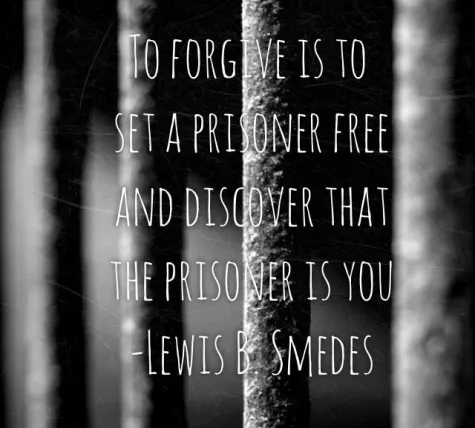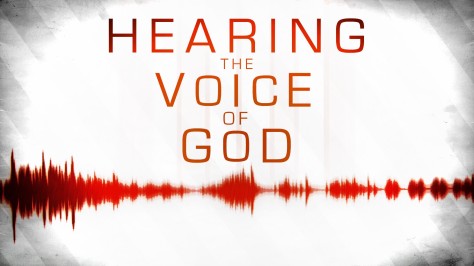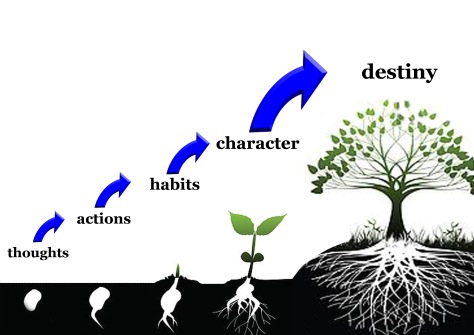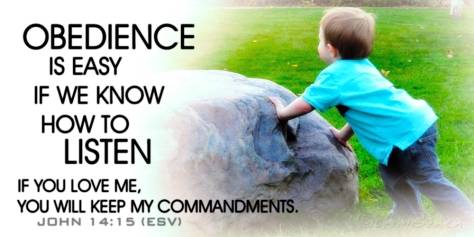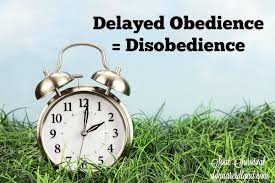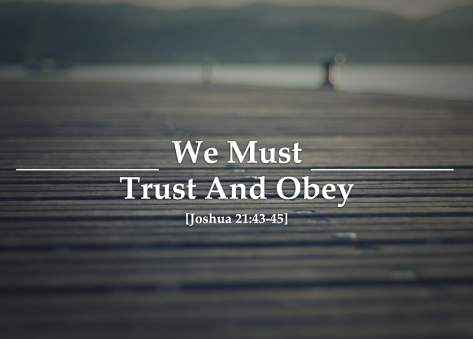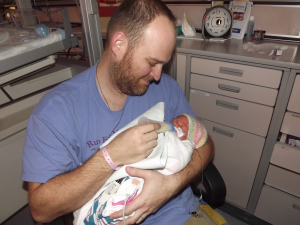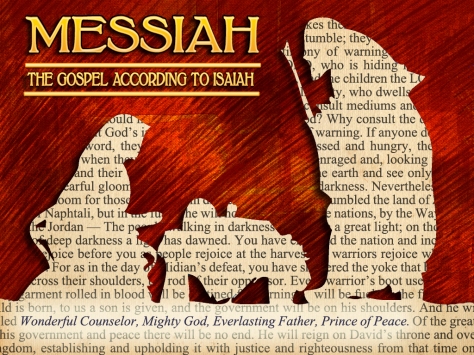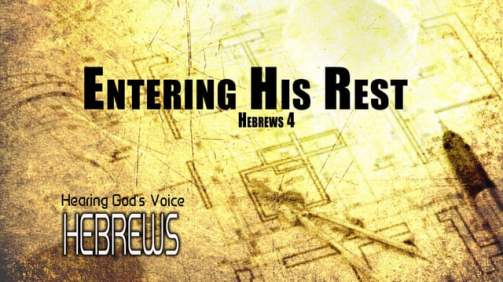
Welcome to the Make Room for God 21 – Day Prayer and Fasting guide. This guide is meant to be a resource for you as you join Generations United in prayer and fasting. It’s designed to provide unity of heart and mind as we grow together in Christ. For each new day of the fast, we will read one chapter from John’s 21 – chapter Gospel, so it works out perfect! And, in the back of this guide there are some great insights into the practice of fasting. While you’ll need to consult your medical provider for specifics on what you could do that aligns with your unique health and well-being, this is designed as a source for ideas and inspiration.
Now, let’s think about prayer for a moment…When we don’t know what we should do, we should be people of prayer, but even when we do know what we should do, we should still be people of prayer. In every situation, whether good or bad, we must never doubt the importance/power of prayer. Sadly, and in many cases, people often act first and then want God to bail them out of their situation, making prayer a last resort, further demonstrating why prayer must be a crucial part of our daily lives. It’s how we talk to our Abba Father.
Understanding the necessity of prayer is not enough. In order for it to become a part of our daily life, it needs to become something we look forward to doing. Prayer allows us to grow closer to the Lord, while also providing guidance and assurance in the areas of life that God is calling us into or out of. I have found that most people who don’t enjoy/understand prayer stems from them either never being taught how to pray, or from them having never prayed or read Scripture on a consistent basis. You see, there is a rhythm in each of our lives, so over these next 21 – days, as we receive new insights, blessings, & breakthroughs from God, we must first be ready to release anything that hinders us from drawing closer to Him.
During our journey together, we will reflect on the importance of fasting, in order to show how abstaining from food/things will heighten your hunger for the things of God. This guide is ultimately designed to bring joy into your time communing with the Lord, so as you discover the beauty of daily conversations with Him, you’ll experience the presence of God that will forever change your life. As you learn how to pray, prayer can easily become a powerful part of your everyday life, because prayer has the power to change everything!
As we read and reflect on the Gospel of John, I want you to discover how what Jesus taught and what He did are tied inseparably to who He is. John shows Jesus as fully human and fully God. Although Jesus took upon Himself full humanity and lived as a man, He never ceased to be the eternal God. This is the truth about Jesus, and the foundation of all truth. If we cannot or do not believe this basic certainty, we will never have enough faith to trust our eternal destiny to Him. That is why John wrote this Gospel—to build faith and confidence in Jesus Christ so that we may believe that He truly was and is the Son of God.
Day 1 – Read John Chapter 1: The Word Became flesh
Key Verse: “Through Him all things were made; without Him nothing was made that has been made.” John 1:3 https://my.bible.com/bible/111/JHN.1.NIV
John starts his account of Jesus’ life with His birth. Where Mark begins with the gospel message and Matthew and Luke have their birth stories, John takes us back in his opening to the eternal purpose of God. Here, we would expect to see maybe a star, a manger, animals grazing, angels singing, or even the wise men. However, John doesn’t tell us of Jesus’ beginning, but ours. You see, Jesus was with God when the world was created. He left heaven and entered the earth the way we did – through childbirth. Jesus was fully human, but he was no ordinary man!
Jesus became flesh, which means He entered into His creation, in order to walk among us and move into our neighborhood. Why would He do such a thing? John sets out to answer this question for us and in doing so, he also displays God’s unending love for us.
Jesus became flesh so He could have a relationship with us and so that we might have a life worth living. By doing so, Christ became (1) the perfect teacher— in Jesus’ life we see how God thinks and therefore how we should think (Philippians 2:5-11); (2) the perfect example—as a model of what we are to become, He shows us how to live and gives us the power to live that way (1 Peter 2:21); (3) the perfect sacrifice— Jesus came as a sacrifice for all sins, and His death satisfied God’s requirements for the removal of all sin (Colossians 1:15-23).
Prayer:
Lord, forgive me as I learn to trust in Your ways and Your timing. Thank You for not only performing miracles in my life, but making me a part of them. I pray at the end of these 21 days to have a deeper relationship with You as I make room for You in my life. Please guide me as I seek to reflect your love and compassion to a lost and hurting world. Amen.
Questions to Ponder:
What do I need to stop doing? Look back over the year of 2018. What wasted all of your time that produced no results?
What do I need to improve? You can’t change your whole life in a month, so pick the area you want to focus on improving and make it your project for 2019.
What do I need to focus on? Ask yourself, “Is there an area in my life that really produced great results that I should put my total focus on?” The “Pareto Principle” says that 20% of your activity produces 80% of the results. Focus on that and invite Jesus into every facet of your life.
Remember: As you set apart 21 days to seek God, know that God has already heard your prayer. He is already at work on your behalf! What specific clarity of vision or breakthroughs are you seeking from God during this time? Write these down and use them in your prayer time so you can reflect on each of them at the end of the 21 days. Spend some time fasting and praying for God to speak to you and give you the strength to accomplish what He has called you to do.
Day 2 – Read John Chapter 2: Jesus Changes Water to Wine
Key Verse: “Jesus said to the servants, “Fill the jars with water,” so they filled them to the brim.” John 2:7 https://my.bible.com/bible/111/JHN.2.NIV
In chapter 2, we see the first of Jesus’ seven signs/miracles found within John’s Gospel. Interestingly, we read how Jesus begins His ministry at a wedding fiasco in Cana. When the host ran out of wine, Mary tells Jesus about the dilemma. I love what happens next because Jesus could have easily spoke a word and the six 30-gallon stone jars would have been filled to overflowing, but He didn’t. Instead, Jesus gave the opportunity to be a part of a miracle to the servants. As a result of their faithful obedience, and when the disciples saw Jesus’ miracle, they believed. The miracle showed His power over nature and revealed the way He would go about His ministry—helping others, speaking with authority, and being in personal touch with people.
Have you ever felt like you were waiting on God? It can feel as though you have been so patient, but you are beginning to question when/if God is finally going to come through in your situation. If this is you, I would ask, “What if God is waiting on you?” When we bring our problems to Christ, we may think we know how He should take care of them. But He may have a completely different plan. We should submit and allow Him to deal with the problem as He sees best.
Miracles/signs are not merely superhuman events, but events that demonstrate God’s power. Almost every miracle Jesus did was a renewal of fallen creation—restoring sight to the blind, making the lame walk, even restoring life to the dead. So, believe in Christ, not because He is a superman but because He is the God who continues His creation, even in those of us who are poor, weak, crippled, orphaned, blind, deaf, or with some other desperate need.
Prayer:
Father, I acknowledge that everything I need today will come from You. You made the heavens and the earth; You are more than capable of handling any situation I’m dealing with, so I give it to You completely (specifically talk to God about what is on your mind and heart right now and give it to Him). I look to you to help me, sustain me, and give me Your peace. Remind me of Your hope and power today. Thank You in advance for taking care of my needs. Amen.
Questions to Ponder:
Am I giving God my best?
What would it look like in my life for me to fill the water jars to the brim?
What next step of obedience is God calling you to take?
What in your life do you need more of and less than?
Remember: Jesus wants to be part of your everyday life, not just emergency situations.
Day 3 – Read John Chapter 3: Jesus Teaches Nicodemus
Key Verse: “For God so loved the world that He gave His one and only Son, that whoever believes in Him shall not perish but have eternal life.” John 3:16 https://my.bible.com/bible/111/JHN.3.NIV
Perhaps the most famous verse in the Bible, John 3:16 demonstrates how Jesus promises that He did not come to condemn us for our sins, but to save us from them. Because Jesus took our punishment, the very definition of mercy, we receive complete forgiveness. And when we confess and expose our mistakes to the light, is allows God to use them for good. Ultimately, when people see God doing great things through imperfect people, He looks even greater!
Seeing Jesus doing great signs/miracles compelled Nicodemus, a Jewish religious leader, to seek a meeting at night with Jesus to see what he was missing.
Whether or not we want to admit it, we have all been afraid of the dark. But what makes darkness so scary? For one thing, it confuses us. When we can’t see anyone or anything, we feel isolated and alone. Walking proves difficult because we can’t see the path. Although we’re usually safe, our imaginations run wild with the dangerous possibilities that could surround us.
We all lived in darkness at one point. Unable to see and believe in God, we lived with a constant sense of loneliness. Uncertain of where to walk, we did things we would probably rather not admit. As unpleasant as it is, we often prefer to stay in the darkness rather than enter the light. We think darkness helps hide the mistakes we don’t want anybody to see. We think if people knew the truth about us, they would judge us. But Jesus tells us it is safe to confess our sins. You see, God loves us exactly where we are, but He loves us too much to leave us there. He then promises that He did not come to condemn us for our sins, but to save us from them. Because Jesus took our punishment, we receive complete forgiveness, when we expose our sin to the light. God can and wants to use all of our mistakes for good, if we will surrender them to Him.
Prayer:
Father, I come to You in prayer today thankful that I am Your child. I know I am a sinner, but You have forgiven me and adopted me as Your own, and I am so grateful to call you my Abba Father. Thank you for loving me. I love you. Amen.
Questions to Ponder:
When people confess their sins to you, how do you respond?
Are you forgiving or do you tend to judge people?
What about your response needs to change as a result of the grace Jesus has extended to you?
Remember: Nothing but faith in Jesus can save.
Day 4 – Read John Chapter 4: Jesus Talks With a Samaritan Woman
Key Verse: Jesus answered, “Everyone who drinks this water will be thirsty again, but whoever drinks the water I give them will never thirst. Indeed, the water I give them will become in them a spring of water welling up to eternal life.” John 4:14 https://my.bible.com/bible/111/JHN.4.NIV
This is one of the most profound chapters in the New Testament as Jesus meets a Samaritan woman at a well and asks her for a drink. Overcome by what Jesus knew about her and what He had to say, the woman brought everyone from town to meet Him. From there, Jesus then traveled to Galilee and healed a government official’s son.
Jesus wasn’t concerned about hanging with the “in” crowd. In this chapter, we see Jesus initiate a conversation with a highly unlikely character—a Samaritan woman who had five husbands. Her gender made her culturally inferior, her race labeled her as one to be avoided, and her lifestyle choices marked her as one to be condemned. But Jesus ignored all the social barriers meant to separate them because His concern wasn’t for appearances; His concern was for people. All people. Hurting people. Searching people. People who make bad choices. Empty people. Because that’s all of us, right?
In John 4:15, the woman refers to the hassle of returning to the well so often to quench her thirst. In the same way, she has repeatedly returned to the “well” of failed relationships to fill her emptiness, to quench her persistent disappointment. In John 4:13–14, Jesus offered to heal a hurt the woman didn’t even realize she had. Today He offers the same for us. While we stuff ourselves on what the world offers—money, success, relationships, sex, possessions, entertainment—the satisfaction is momentary at best. Jesus offers us peace, joy, love, and a relationship that is fulfilling. Jesus alone satisfies our every need, quenches our every thirst, lasts forever, and never disappoints. He approaches us in our current state and offers to meet our greatest need—the need for a Savior.
Prayer:
God, thank You so much for offering me the gift of forgiveness. Show me any areas in my life that I need to bring before You in order to receive forgiveness and healing. I confess that I have been struggling with sin and I know that You want me to be clean again. Please forgive me for my sin. Thank You for showing me unfailing grace. As You have so freely forgiven me, I also want to freely forgive others. Please help me let go of all of my offenses. I release to You those who have hurt me and I trust You to handle any situations according to Your perfect will. Amen.
Questions to Ponder:
How have you tried to fill your own emptiness with the things of the world?
Just like the woman found herself returning to the well to try and fill her thirst, what sins do you find yourself returning to in an effort to fill the void in your heart?
How have you experienced Jesus’ peace, joy or love in your own life recently?
Remember: To be full of God, you must cultivate a hunger for the Word of God.
Day 5 – Read John Chapter 5: The Healing at the pool
Key Verse: “Very truly I tell you, whoever hears My word and believes Him who sent Me has eternal life and will not be judged but has crossed over from death to life.” John 5:24 https://my.bible.com/bible/111/JHN.5.NIV
Religious leaders get angry when Jesus heals a lame man on the day of rest. They get even angrier when Jesus claims to be God’s Son.
For most of John 5, Jesus speaks to the Jews who criticize Him for healing the man at the pool of Bethesda on the Sabbath. The Jews had rules upon rules about what good Jewish people could and could not do. One of those rules prohibited any kind of work on the Sabbath. Healing was work and, according to their rules, should be saved for the other six days of the week. Allow the absurdity of that to sink in. The religious Jews were essentially saying, “How dare you perform a miraculous healing in defiance of the Jewish law! How dare you change this man’s life on the Sabbath! How dare you end his 38 years of suffering! That can surely wait until tomorrow.”
Jesus continues to call them out in John 5:39–40, where He points out their diligent study of the Scriptures but their blatant disregard for believing them.
The whole Bible is about Jesus. Even the Old Testament tells us about God’s plan to send His Son to save us. The Jewish people, specifically the Pharisees, knew those Scriptures well, but failed to recognize Jesus as their fulfillment.
If we aren’t careful, we too can turn our relationship with Jesus into a bunch of rules we follow, a bunch of words we read, and a bunch of songs we sing. By doing so, we can completely miss Jesus and the miracles He is doing all around us.
Prayer:
Father God, nothing is too hard for You! Through Your great power, all things are possible. All authority is Yours, all might is Yours, and I know that Your victory will be complete. You are amazing, and I worship You. I praise You for Your power and presence in my life. You are my God, and You are worthy of all praise. Amen.
Questions to Ponder:
What can you learn about Jesus from this chapter?
How has Jesus performed healing in your life?
Why is it our tendency to make our relationship with Jesus a checklist of good behaviors?
What changes can you make today to break that cycle?
Remember: God is interested in our desire, not our ability. He will never call you to do something He is not prepared to enable/equip you to do.
Day 6 – Read John Chapter 6: Jesus Feeds the Five Thousand
Key Verse: “Then Jesus declared, “I am the bread of life. Whoever comes to Me will never go hungry, and whoever believes in Me will never be thirsty.” John 6:35 https://my.bible.com/bible/111/JHN.6.NIV
Jesus feeds 5,000 people with five loaves of bread and two fish, walks on water across stormy seas in the middle of the night, and follows that up by declaring to a crowd of people that in order to live they must eat His flesh and drink His blood. Let that sink in!
To be honest, John 6 can be a little scary. Not because Jesus talks about eating flesh and blood, but because it is hard to accept. Many in the crowd felt the same, “from this time many of His disciples turned back and no longer followed Him.”
Walking on water and making bread join a long list of miracles/signs along with raising people from the dead and opening blind eyes. Jesus’ miracles and His controversial “eat my flesh” statement all convey the same message: Jesus is the point. In this life and the next, we can never be satisfied apart from Jesus. And on the opposite end of that spectrum, if we have nothing but Jesus, we have everything. To live is Christ and to die is gain!
It’s understandable why some walked away. They didn’t want to surrender everything to Jesus. Some people probably wanted a show, others wanted to be a part of something powerful, while many simply wanted to have a personal need met. Their world was very similar to our world today: looking for more money, more things, more options, and more religion. “More” was the focus of their desires, actions, and attitudes, while more of God should have been the emphasis.
Jesus spoke in direct contrast, saying “I am” the answer. Jesus did not come to leave us wanting; He came to give us everything. He is everything. Like Peter, we can say with joy, “Lord, to whom shall we go? You alone have the words of eternal life” (John 6:68).
Prayer:
Father God, You are so good, and You deserve all my praise and more. Thank You for the many ways You have blessed me and for watching over me. Today, I pray to experience Your presence and Your love in a fresh new way, as I make room for You in my life. I thank you that Your mercies are new every day. I thank you for Who You are and all You have done for me. Amen.
Questions to Ponder:
How can you make more room for God in your life?
What, if anything, are you scared to surrender to Jesus?
Is anything in your life holding you back from a 100 percent commitment to Him?
Do you think you are living a full life? Why or why not? Ask God if He wants to change the way you live.
Remember: Trials aren’t meant to beat us down, but to build us up. Whatever you’re going through, God will use it in your life to make you more like Him!
Day 7 – Read John Chapter 7: Jesus Goes to the Feast of Tabernacles
Key Verse: “Whoever speaks on their own does so to gain personal glory, but he who seeks the glory of the One who sent him is a man of truth; there is nothing false about him.” John 7:18 https://my.bible.com/bible/111/JHN.7.NIV
As Jesus becomes more well-known, everyone has an opinion about what He should do next. His brothers ridiculed Him, a crowd calls Him demon-possessed, and religious leaders attempt to arrest Him.
Sometimes following God can lead you to lonely places. Jesus’ own brothers questioned His divinity and seemed to mock Him, pushing Him to go public and show everyone who He really was. Jesus dealt with criticism from His brothers, criticism from neighbors, and death threats from the religious leaders who should have been on His side.
The very people who should have supported and sustained Jesus’ ministry turned against Him and yet He continued to do the right thing. Jesus did not grow bitter or angry; He did not plot revenge or plan a public relations campaign to promote Himself. Instead, Jesus chose not to take His rightful place as God. He chose to humble Himself, stay out of the confusion, and offer spiritual refreshment to anyone who was looking for something new (John 7:37).
We can take heart because we’ve given our lives to the same Jesus that dealt with real life problems. When we feel lonely and left out, we know He felt the same way and responded in love. We can rest in the knowledge that Jesus suffered and faced hardship, but it never conquered Him. That means sorrow, loneliness, and hardships do not have to conquer us. No matter your circumstances, Jesus understands exactly where you are and He wants to help you stand strong. Because Jesus faced loneliness, you do not have to face it alone.
Prayer:
Thank You, God, for making a way for me through Your Son. Jesus, thank You for the sacrifice You made for me on the cross. You saved me, and You set me free. I praise You for being my Healer. Thank You for being my Redeemer. You rescue me and give my life purpose. Thank You for transforming my life with Your love, for making me new. I want to continue in growing to be more like You. Amen.
Questions to Ponder:
What can you learn about the motives of Jesus from this chapter?
Do you have a troubled relationship with someone in your life? How can you respond to this person differently knowing you have the strength Jesus offers?
Are you putting off a decision because you are afraid of the outcome or worried about being ostracized? How can you proceed?
Remember: Jesus quenches every thirst. The living water is not just for your own enjoyment, but to be a constant blessing to others. If the Spirit of God is in control of your life, it will be an abundant and joyful experience, caring more about Christ and others than yourself.
Day 8 – Read John Chapter 8: Jesus Goes to the Mount of Olives
Key Verse: “Very truly I tell you, “before Abraham was born, I am!” John 8:58 https://my.bible.com/bible/111/JHN.8.NIV
When religious leaders bring an adulterous woman to Jesus for judgment, it becomes a lesson in not judging others. Jesus then goes on to explain He is the eternal Son of God and they are illegitimate children.
Using the name God gave Himself in Exodus 3:14, Jesus makes an audacious claim: “Before Abraham was, I am!” Jewish leaders heard this statement and became so angry they wanted Jesus dead. The Pharisees were considered the ultimate authority on God’s Word by the nation of Israel and had an incredible knowledge of the Scriptures. Jesus brushed off their personal attacks and reminded the Jewish leaders that they may know the Scripture, but they do not know God.
What a dangerous place to be—to know the Bible cover to cover yet not know God. In John 8, the Jewish leaders knew enough of the Bible to debate Jesus but failed to apply it to their lives. Reading and applying the Bible should always point us to Jesus because knowing Jesus is more important than knowing Scripture.
However, when we know Scripture and apply it, we look like Jesus at the beginning of chapter 8. We shield the helpless, forgive the sinful, offer hope in hopeless situations, and rebuke the self-righteousness. When Scripture is applied, it points us to Jesus instead of preparing us for debate.
Prayer:
God, I confess my sins to You and turn away from them (tell God any sin you know is in your life and confess it to Him with a sincere heart. Ask Him to show you any other areas that need His cleansing). Thank You, God, for freely forgiving me. As I turn away from my sin, I turn toward You, and I offer myself to You. Amen.
Questions to Ponder:
What can you learn about Jesus from this chapter?
While reading your Bible today and over the next few weeks, begin your time by asking God to meet with you and allow you to know Him, not just His words.
Is there a verse or idea from today’s reading you can apply to your life right now?
How can learning about Jesus through the Bible change your actions and attitude?
Remember: Faith alone saves, but faith that saves is never alone.
Day 9 – Read John Chapter 9: Jesus heals a Man Born Blind
Key Verse: “While I am in the world, I am the light of the world.” John 9:5 https://my.bible.com/bible/111/JHN.9.NIV
Jesus meets a blind man and heals him with a combination of dirt, spit and the Holy Spirit. When the man’s neighbors learn about his healing, religious leaders come to Jesus looking for answers.
Can you imagine living with absolutely no vision? Your view of the world would be the images someone has patiently painted in your mind. John 9 describes a man blind since birth. Some of Jesus’ disciples assumed the blindness had been brought on by sin, maybe his or maybe even the sin of his parents. However, Jesus assured them that the man’s troubles had not been caused by sin, but “…so the works of God might be displayed in him” (John 9:3).
If you were blind, wouldn’t you be willing to try just about anything to be radically healed? Can’t you see yourself thinking, “Cover my eyes with a fresh mud pie made out of spit? Good plan!” Because that’s exactly what Jesus did. After covering the man’s eyes with mud, Jesus told him to go wash his face. In an instant, his dark world became light.
Religious leaders overlooked the healing miracle because they wanted to ensure it happened according to their regulations. Was this the same man who had been blind, the beggar? If so, who had healed him? Didn’t Jesus know He wasn’t supposed to heal people on the Sabbath? Their interrogation ended abruptly with the former blind man proclaiming, “I was blind, but now I see!” (John 9:25)
Everyone who accepts Jesus as Lord and Savior has a before and after story. If you’ve gone from darkness to light, your story has been written so the works of God might be displayed in you. Your story is just as miraculous as the one in John 9. You were blind, and now you can see!
Prayer:
Thank You, God, for giving me Your Word. I commit to reading it, and I ask You to reveal Yourself to me through it. I want to know You more. Help me to grow more in love with Your Word and to be more dependent on it. I claim the promises You have for me, and I meditate on the truth of Your Word. Give me fresh revelation from your Word today and every day! I am hungry to see You more clearly through Your Word. Amen.
Questions to Ponder:
What do you think was Jesus’ favorite miracle to perform?
Who do you need to share your story with today?
Not sure where to start or if you haven’t given your life to Jesus, today is the perfect day. Email jdavis@genuchurch.com to talk with someone about Him.
Remember: Don’t discount the value of your testimony. It’s never too early to stand up for what Christ did on the cross and what He continues to do for each of you.
Day 10 – Read John Chapter 10: The Shepherd and His Flock
Key Verse: “I am the gate; whoever enters through Me will be saved.” John 10:9 https://my.bible.com/bible/111/JHN.10.NIV
Jesus compares Himself to a good shepherd who feeds and cares for His sheep. Tired of Jesus’ metaphors, religious leaders corner Jesus at the temple and ask Him directly: Are you the Christ?
How can we live abundant lives? We all want that, don’t we? But we can’t answer how until we focus on the more important question: What—or Who—is the source of abundant life?
Jesus says in John 10:10, “The thief comes only to steal and kill and destroy; I have come that they may have life and have it to the full.” Chasing anything other than Jesus will steal what God has blessed you with, kill your dreams, and destroy your purpose in life. Only Jesus can restore the blessings that have been stolen, bring life to dreams that have died, and give our lives purpose. Possessions come and go, as does the enjoyment they bring. The only way to experience joy that never leaves is to have something that cannot fail. An abundant life only comes from Jesus, who never fails.
There is a story about a millionaire named John D. Rockefeller who, when asked by a reporter what amount of money was enough to make him happy, replied with, “Just one dollar more.” Nothing on Earth is ever going to satisfy us. But if you ask anyone who has made Jesus the Lord of their life, they will tell you that they are blessed beyond anything they could have ever asked or imagined. A life apart from Jesus will always leave you lacking, but a life centered on Jesus is full of abundance.
Prayer:
Thank You, God, for Your presence. I know that You are here with me. I worship You and You alone. I know God, that You are:
My Righteousness – Jeremiah 23:6
My Sanctifier – Leviticus 20:7-8
My Healer – Exodus 15:26
My Provider – Genesis 22:14
My Banner of Victory – Exodus 17:15
My Peace – Judges 6:24
My Shepherd – Psalm 23:1.
Amen.
Questions to Ponder:
Who is the source of abundant life?
What do you strive for in life?
How does what you strive for differ from what Jesus strived for?
What are some common traps that keep us from living the full life Jesus promised?
Remember: When you accept Christ’s invitation, you can rest in the security of your salvation.
Day 11 – Read John Chapter 11: The Death of Lazarus
Key Verse: “I am the resurrection and the life. The one who believes in me will live, even though they die; and whoever lives by believing in me will never die.” John 11:26 https://my.bible.com/bible/111/JHN.11.NIV
Jesus’ friend Lazarus falls ill but by the time Jesus reaches Lazarus’ house, it’s too late. Jesus weeps for His friend then raises Lazarus from the dead!
Have you ever wondered about God’s timing? You’re not alone. Some of Jesus’ close friends did too. When Lazarus became deathly ill, his sisters, Mary and Martha, asked Jesus for help. They knew Jesus was traveling and His ministry was growing, but He was a close friend. Surely, He could take a few minutes to heal their brother. But Jesus didn’t show up. Two days later when He arrived, it was too late. Lazarus was already dead.
Martha and Mary were not only grief stricken, but deeply troubled by Jesus’ apparent lack of concern. “Lord,” Martha said to Jesus, “if you had been here, my brother would not have died. But I know that even now God will give you whatever you ask” (John 11:21–23). Jesus replied to her, “Your brother will rise again.” Even hearing Jesus’ words, the sisters were probably wondering, “Lord, what are You thinking now?!”
As they traveled to Lazarus’ four-day-old gravesite, Martha questioned Jesus’ timing again. His response to her was clear, “Did I not tell you that if you believed, you would see the glory of God?” After thanking God, Jesus called out loudly, “Lazarus, come out!” And he did. Lazarus, still wrapped in strips of linen, but fully alive, walked out of the tomb.
Maybe you’ve questioned Jesus’ timing. You knew exactly when He needed to show up and what He needed to do, but it didn’t work out the way you had planned. Even when we don’t understand, He can always be trusted. Isaiah 55:8–9 says, “‘For my thoughts are not your thoughts, neither are your ways my ways,’ declares the Lord. ‘As the heavens are higher than the earth, so are my ways higher than your ways and my thoughts than your thoughts.’”
Prayer:
Thank You, God, for creating a way through Jesus for me to have Your presence wherever I go. I ask You, God, to be present with my family. Bless them and keep them from harm. For those in my family who don’t know You, I ask that You meet them where they are and guide their hearts toward You. I pray that You will bring the lost into our church, and that they will have a positive experience and come to know You. Please keep us moving in Your vision and Your goals. Amen.
Questions to Ponder:
Have you ever doubted God’s timing? What did you learn from that situation?
If you’re unsure about God’s plan or timing in a situation now, would you surrender it to Him? How could trusting God’s timing change your thoughts and attitude about your circumstance?
Remember: Sometimes God chooses to deliver us from hardships, and sometimes He delivers us through them.
Day 12 – Read John Chapter 12: Jesus Anointed at Bethany
Key Verse: “Mary took a pint of an expensive perfume; she poured it on Jesus’ feet and wiped his feet with her hair. And the house was filled with the fragrance of the perfume.” John 12:3 https://my.bible.com/bible/111/JHN.12.NIV
Mary washes Jesus’ feet with perfume. The next day, Jesus rides into Jerusalem on a donkey as crowds praise Him. Jesus explains why He’s going to die and makes a plea for the Jews to believe.
What would you consider your most valuable possession? Maybe it’s a car, a family heirloom, a computer or a house. We all have things that we value and take great care to keep. In the beginning of John 12, we see the thing Mary considered precious—a bottle of expensive perfume. This perfume was not just a fragrance to Mary. It was worth nearly a year’s wages. Mary wasn’t just saving this perfume for a special day. This bottle was her financial security.
In an act of worship, Mary poured her perfume onto Jesus’ feet. She knelt to the ground and washed His feet, ignoring the opinions of others. Mary gave radically. She gave not knowing if she’d be able to live through the day, but trusting Jesus anyway. She gave with such extravagance that the disciples told her she’d given too much.
To put Mary’s situation in today’s terms, it would be like you going to church next Sunday, feeling called to give and writing a check for your entire year’s salary! Yet, this is the same way God gave to us. He gave His best: Jesus. God not only calls us to radical faith, He calls us to radical giving.
Prayer:
Your Word tells me that if I seek first Your Kingdom and Your righteousness, You will lead me to a life of blessing, purpose, and freedom. I am Yours today, God, and I give this day to You. Help me to focus on Your priorities first, sharing Your love and making Your Name known. I know that by focusing on You rather than myself, I will receive joy and peace. Amen.
Questions to Ponder:
What can you learn about Jesus from this chapter?
What’s holding you back from pouring your security out at Jesus’ feet?
How does this chapter show us that we can trust Him with what’s most precious to us?
Is there anything in your life you have not given to God?
Remember: The fear of man brings a snare, so always keep your guard up. The enemy has all sorts of tricks up his sleeve. If he can’t get your heart so hardened that it rejects Christ, he will settle for crippling your effectiveness as a Christian through discouragement. But we have a great incentive to live solely and publicly for Him—His imminent return.
Day 13 – Read John Chapter 13: Jesus Washes His Disciples’ Feet
Key Verse: “I have set you an example that you should do as I have done for you.” John 13:15 https://my.bible.com/bible/111/JHN.13.NIV
Jesus washes His disciples’ feet and they share one last meal together. Jesus warns Peter about the separation to come, but Peter doesn’t understand.
We’ve all had to wrestle with forgiveness. We can’t escape hurt feelings or being wronged, and neither could Jesus. In this chapter, Jesus models forgiveness in a way that doesn’t allow us to hold grudges. He is sitting at the table with His disciples, fully aware that Judas and Peter are about to betray Him.
Jesus’ forgiveness extends beyond simply saying “I forgive you.” Forgiveness is not just something He says; it’s something He puts into action. Jesus kneels and selflessly serves them as He washes their feet, including Judas and Peter. He makes no exceptions. He offers His forgiveness to everyone, no matter what they have done or will do.
We can often read this chapter and be amazed these men sat at the table with Jesus and then turned their backs on Him. We can wonder how Jesus offers forgiveness to men like this, but falsely believe we cannot do the same to the people that have hurt us.
The game changer is when you and I realize we are the same as the men at the table with Jesus. We are the ones who deny Him, and He washes our feet. We were far from God, denying Him with our life and deserting Him in our choices, yet He still came for us. That kind of grace cannot stop with the one who benefits from it—we must extend grace, too.
Prayer:
Heavenly Father, You have promised that if I draw near to You, You will draw near to me. I need more of Your presence today, and I am drawing near to You through prayer, worship, fasting, and reading Your Word. I open my heart to You and ask You to be near to me and change me to be more like You. Amen.
Questions to Ponder:
What can you learn about Jesus from this chapter?
Have you accepted Jesus’ forgiveness in your own life?
Are there things you can’t believe Jesus would ever forgive you for?
To whom in your life do you need to extend forgiveness?
How can you forgive that person today?
Remember: God accepts you as you are, but He won’t leave you that way.
Day 14 – Read John Chapter 14: Jesus Comforts his Disciples
Key Verse: “Very truly I tell you, whoever believes in me will do the works I have been doing, and they will do even greater things than these, because I am going to the Father.” John 14:12 https://my.bible.com/bible/111/JHN.14.NIV
Jesus gives final instructions to His friends, explaining what they should do when He’s gone and tipping them off about the Counselor Who is to come.
Obedience is not easy and submitting to someone’s authority can be very difficult. It may seem easier at times to do what we feel is right. However, in John 14, Jesus is very clear about Who is in charge and—He is obedient to the Father.
We can find a concise definition of obedience in James 1:22: “Do not merely listen to the Word, and so deceive yourselves. Do what it says.” An important part of obedience is reading the Bible. However, reading words is just the first part of being obedient. The more important part is putting those words into action. When we read about giving generously to the poor, we actually go do it. When we read about forgiving our neighbor, we actually forgive them. This is the true act of obedience, especially when no one is watching!
In John 14:15–23, Jesus tells us why obedience is such a big deal. He connects our obedience to our love for Him. He declares that our love for Him will give us a desire to be obedient. As we learn more about Him and fall deeper in love with Him, we will want nothing more than to be just like Him. The love of God prompts our obedience, not the other way around.
The world offers a false-peace that is only a temporary escape. Whether it’s drugs, alcohol, sex, or any other fleshly temptation. But Jesus doesn’t give peace like the world gives—He gives a lasting peace. So, how do you encounter this comfort, communication, and peace? How do you get “filled with the Spirit?” The same way you get saved: Realize your need and ask in faith. Like any other gift, you must choose to receive it.
Prayer:
God, You are my Provider, and I know You will take care of me. Thank You for guiding me to places of rest. You are my source of energy and passion. You keep me going and lead me toward a life of purpose and freedom. You have chosen me, and I have chosen You, and that means I will be with You, in Your presence, forever. Amen.
Questions to Ponder:
What can you learn about Jesus from this chapter?
What areas of your life don’t look much like Jesus?
What is one thing you can do today to make your life look more like Jesus’ life?
Remember: Through the Holy Spirit, we have comfort, communication, and peace.
Day 15 – Read John Chapter 15: The Vine and the Branches
Key Verse: “Remain in me, as I also remain in you. No branch can bear fruit by itself; it must remain in the vine. Neither can you bear fruit unless you remain in me.” John 15:4 https://my.bible.com/bible/111/JHN.15.NIV
Continuing His parting words to His friends, Jesus explains that the way to stay connected to God is by following His example. He also warns that they will be hated and misunderstood.
Pruning is the process of cutting limbs from a plant to keep it healthy and productive. If there are branches that are not producing any fruit, they will be cut off completely. As we follow Jesus, we also require pruning in order to grow and change. God is a gardener, and if we are all branches on His vine, then when we each bear fruit and we are all playing a part in His end game. The beauty is that others are blessed by this process; those attached to the vine, and those not. In a vine, not every grape has the same purpose—whether raisins, wine, jelly, or juice. Likewise, we all have different gifts that lead us to being used uniquely, helping the whole vine to grow. On top of that, our fruit attracts unbelievers to the vine, thus grafting them into the vine as well.
Love is a fruit. Patience, kindness, gentleness, joy, faithfulness, goodness and self-control are all fruits (Galatians 5:22–23). These characteristics are evident in people who are connected to Jesus, the vine. What others see is a reflection of what’s going on inside of us. As a follower of Jesus, others should see fruit in your life. If you are not seeing fruit in your life, maybe it’s time to connect with Jesus. Get connected to the source that will give you abundant life and produce that fruit in you.
If you are in a season of pruning, it is because you are connecting to Jesus. You are growing, you are changing and He is making you into something more beautiful, something richer and better than what you already are. Jesus is not content with letting you stay the way you are—He wants more for you. He wants the absolute best for your life! 1 Peter 5:7 says, “Cast all your anxiety on Him because He cares for you.” He cares for you and although the process may be painful and uncomfortable, He is not okay with letting you stay where you are when something more beautiful is waiting. Jesus will perfect you because He is concerned for you.
Prayer:
Father God, I ask You to search my heart. If You find anything in me that is offensive, please show me and help me remove it from my life. Lead me to live a life that draws people to You. Help me live my life on earth in a way that impacts eternity. Amen.
Questions to Ponder:
What can you learn about Jesus from this chapter?
Is there evidence of fruit in your life?
What are some practical ways to stay connected and growing in a relationship with Jesus?
Remember: God wants you to grow, but sometimes that means pruning.
Day 16 – Read John Chapter 16: The Work of the Holy Spirit
Key Verse: “When the Spirit of truth, comes, He will guide you into all the truth. He will not speak on His own; He will speak only what He hears, and He will tell you what is yet to come.” John 16:13 https://my.bible.com/bible/111/JHN.16.NIV
Jesus teaches His friends about the Holy Spirit and His role in their lives. He also teaches them the power of praying in His name.
In this world we will have trouble—that’s a given. But there is hope! In John 16, Jesus explains to the disciples that while He would be leaving this earth, they would not be left alone. As believers, we have the Holy Spirit living in us. He is our comforter, our peace, our strength and our teacher. That was part of God’s plan from the beginning. The Holy Spirit is ready and available to be part of anyone and everyone’s life. God did not leave us to navigate life in this world on our own.
Depending on your background, you may find the thought of the Holy Spirit weird or even scary. But the Holy Spirit is a gift from God, and God only gives good gifts. The Holy Spirit’s main role is to bring us comfort, encouragement and understanding.
It took a heavenly perspective to realize that the short-term loss was nothing compared to the long-term advantage. Similarly, we at various times may sense God doing things that are not in our plans. Maybe it violates our comfort, our happiness, or our 5-year-plan. In those times, we must ask God to reveal what He’s doing and see how it will be used for the better.
God sent the Holy Spirit to lead us and comfort us. The Holy Spirit corrects us and lets us know when we need to address sin in our lives. He guides us, nudges us and leads us as we take our next steps in faith. The Holy Spirit also reveals truth to us, truth that brings about change in our hearts, our minds and our character as we seek Him and obey Him. He brings us peace, comfort and strength. He is our companion.
Prayer:
Holy Spirit, I ask You to fill me up. I need Your presence in my life, guiding, directing, comforting, and counseling me. You are the Spirit of Wisdom, Understanding, Counsel, Might, and Knowledge. Give me a holy fear of the Lord, helping me to be in awe of who God is and what God does. Work in me, Holy Spirit. Teach and transform me. I honor You and ask You to empower me with Your spiritual gifts for the good of the church. Amen.
Questions to Ponder:
Is there something the Holy Spirit is nudging you about?
Do you have a next step to take or a sin that needs to be addressed?
Do you trust the Holy Spirit and know that He is always with you? Why or why not?
Remember: God turns short-term loss into long-term advantage.
Day 17 – Read John Chapter 17: Jesus Prays for Himself
Key Verse: “My prayer is not for them alone. I pray also for those who will believe in me through their message, that all of them may be one, Father, just as you are in me and I am in you.” John 17:20-21 https://my.bible.com/bible/111/JHN.17.NIV
Before heading to His death, Jesus stops and prays for Himself, His friends and all of us who would believe in Him in the future.
If you want to know what someone thinks about God, listen to their prayers. Do they ask God only for wealth and possessions, or for others’ salvation? Do they appeal for God’s intervention like they would present a business proposal or as a child petitioning their father?
In John 17, we’re allowed to eavesdrop on one of Jesus’ prayers. Although it is only moments before He will be betrayed, beaten and crucified, Jesus takes time to pray on behalf of His disciples. He shows His heartfelt concern, not only for the men He has taught for years but for those who would later hear His message, including you.
The intimacy and familiarity with which Jesus speaks to God is evident. For eternity, even before “the foundation of the world,” Jesus and God the Father have shared a perfect loving relationship. Through Jesus, we get to enter into their perfect loving union. You have received eternal life and restoration to a loving and intimate relationship with God through Jesus.
God is not far off and Jesus’ concern for you is not distant. He prayed for you. Even today, the Son resides next to the Father, continuing to appeal on your behalf (1 John 2:1). Today, thank God for allowing you to enter into a completely loving relationship with Him through Jesus.
Prayer:
Father, in Your Word You invite me to pour out my heart to You. You are my refuge, and I know that anything I think, feel, or do is ok to bring to You. Knowing that You are a safe place for me, I come to You and give You everything on my heart. From what is worrying me to what is delighting me, what I hope for to what I’m afraid of, I bring it all to You because I know I can trust You. Help me and guide me in every area, in Jesus’ Name. Amen.
Questions to Ponder:
What can you learn about Jesus from this chapter?
How are you encouraged by the fact that Jesus prayed for you?
How can your confidence in God’s love for you affect your actions, even in the face of those who hate you (John 17:14)?
Remember: Prayer is powerful and will help keep you going when you hit the wall and feel like you can’t go on.
Day 18 – Read John Chapter 18: Jesus Arrested
Key Verse: “The reason I was born and came into the world is to testify to the truth.” John 18:37 https://my.bible.com/bible/111/JHN.18.NIV
Religious leaders arrest Jesus and take Him to the high priest for questioning. Peter follows behind and denies knowing Jesus. After holding their own hearing, the Jews press charges against Jesus in the Roman court.
Some days alarms don’t go off, cars won’t start and nothing goes as planned. But those mishaps pale in comparison to moments when someone suddenly loses their job, is widowed or struck with an incurable illness. Our future is unforeseen. The scene is an unimaginable disaster. Jesus is betrayed by one of His closest friends. He is arrested and bound by a band of officers and soldiers, then interrogated and treated like a criminal. Seemingly, everything had gone wrong.
But in reality, everything was going according to plan. John makes it clear that Jesus was not a victim of circumstance, but in complete control. Jesus foretold these events. He turned himself over to them “knowing all that would happen to him” (John 18:4) and He declared to Pilate, “For this purpose I was born and for this purpose I have come into the world” (John 18:37). How could Jesus continue to submit to the situation? He trusted in God’s perfect plan.
In the same way Jesus trusted in the goodness of the Father despite His circumstances, we can trust that God is in complete control over every aspect of our lives. Even when events are outside of our control, we can rest assured that God is graciously orchestrating everything for our ultimate good (Romans 8:28). Today, thank God for His goodness and His authority over all circumstances. Ask Him to help you remember this truth in the face of any difficulty.
Prayer:
God, You promise me in Your Word that in all things You work for my good. Right now, there are circumstances in my life that don’t feel good and that I can’t see an ounce of good in. Even though this is how I feel, I choose to believe Your truth over my feelings. When you say You will work in all things for my good, I believe You. Even in situations that seem hopeless, I know You are working on my behalf and that You want more for me than I could ever want for myself. Thank You for having a purpose for me and for working in all of my life’s circumstances. Amen.
Questions to Ponder:
What can you learn about Jesus from this chapter?
How does knowing God is in control of all things change how you see the difficulties in your own life?
Remember: Forgiveness is forever. Jesus had prayed that when Peter felt condemned, he would be restored and strengthened by his brethren. And that same promise is made to us. What Satan intended to kill Peter, just like he had Judas, Jesus turned on its head. Peter received forgiveness and became stronger for it, going on to champion the Gospel the world over. Peter was never too far away to be forgiven and neither are we.
Day 19 – Read John Chapter 19: Jesus Sentenced to be Crucified
Key Verse: “It is finished.” John 19:30 https://my.bible.com/bible/111/JHN.19.NIV
Jesus is flogged and crucified. He dies on a cross and is buried in a nearby tomb.
Right before Jesus took His last breath, He spoke these words, “It is finished,” which translates as “paid in full.”
In His three years of ministry, Jesus completed the task set before Him. He voluntarily chose to sacrifice Himself, knowing His death would pay the penalty for our sin and create a way for us to become right with God and have a relationship with God. We were born sinful and separated from God. Accepting that Jesus is our Savior is the only way we are able to restore that relationship. Jesus finished what we could not.
Jesus died so we could believe. John tells us that this testimony of Jesus was given, “so that you also may believe” (John 19:35). The events of Jesus’ death on the cross were recorded based on an eyewitness testimony. You and I were not there to see this with our own eyes but someone did see these things and recorded them. God gave us someone tangible to believe in by sending His son, Jesus, here to Earth. Jesus gave His life to make a way for us to have life (John 10:10).
In all, over 28 unique prophecies were fulfilled the day Jesus died. Why would God go to such great lengths to describe how His Son would die? Verse 35 says, “so that you may believe.” Ultimately, God did this so we would see that this whole thing was a rescue mission—that Jesus was sent into the world to save the world—and so we wouldn’t mistake it. He died so that we could live and that was the plan all along. John 10:18 says, “No one takes it from Me, but I lay it down of myself.”
Prayer:
God, I am in awe of Your love for me. You are so great, and I am so small, yet You love me fully. I remind my soul today that nothing can separate me from Your love—I am so grateful! There is nothing I can do to win or lose Your love; You love me without condition. Because I know nothing on earth, in time or space, or anything in existence can separate me from Your love, I will live confidently and peacefully knowing I have always been and will always be fully loved by You. Amen.
Questions to Ponder:
What one area of your life seems too overwhelming to finish? What strength can you find from Jesus?
What does it mean to you to know that Jesus loves you despite what you have done or will do?
Remember: Jesus died so we can live. In a very real sense, He sacrificed His life so we could go free.
Day 20 – Read John Chapter 20: The Empty Tomb
Key Verse: “Because you have seen me, you have believed; blessed are those who have not seen and yet have believed.” John 20:29 https://my.bible.com/bible/111/JHN.20.NIV
Mary Magdalene, one of Jesus’ followers, goes to His tomb only to find that He’s not there! Jesus appears to Mary and several others, fulfilling all that He had said about rising from the dead.
Our culture loves the idea that anybody can begin a new life. We watch reality television shows that make us believe we can all become an instant celebrity. We love the American dream because it tells us that we can be anything we want to if we try hard enough. But the reality is we have no hope of changing ourselves. The only way we can put away sinful habits is through a relationship with Jesus made possible by His death and resurrection.
On the cross, Jesus clothed Himself in our sin. When Peter and John looked into the empty tomb, they saw Jesus was not there and He had left His burial clothes. John 20 shows us that Jesus left our sinful nature in the grave when He rose from the dead.
We do not have to be controlled by our desire to sin. Not only do we not have to be clothed in sin, the resurrection means we get to be clothed in something better. In Colossians 3:12 Paul says, “Clothe yourselves with compassion, kindness, humility, gentleness and patience.” Following Jesus allows us to put away our old lives and begin new ones.
Prayer:
God, I am in awe of You. Your Name is a strong tower, a place of protection and safety for me. I praise You as my Healer, my Shepherd, and my Banner of Victory. You are my Peace, my Provider, my Righteousness, and my Sanctifier. Your Name is great, and I worship You. If I feel uncertain or afraid, I pray You will comfort me through Your Holy Spirit and remind me that I am never alone because You, the Almighty God, have promised to always be with me. Amen.
Questions to Ponder:
What can you learn about Jesus from this chapter?
What old habits do you need to do away with?
What is one thing Jesus wants you to start doing?
Remember: If we don’t go, they won’t know. To them, and to us, Jesus relays how urgent the job is. He is saying, “I am sending you out with the Gospel, and if you don’t present it, how can anyone know Me and be forgiven?” God gave us authority to tell those who receive Christ that they are forgiven, and that is a powerful job description.
Day 21 – Read John Chapter 21: Jesus and the Miraculous Catch of Fish
Key Verse: “If I want him to remain alive until I return, what is that to you? You must follow me.” John 21:22 https://my.bible.com/bible/111/JHN.21.NIV
This chapter marks the third and final appearance of the risen Lord. As Jesus appears this final time, His disciples were fishing, and it would be on the beach that Jesus reassures/forgives Peter and encourages the other disciples to always follow His example as His apostles.
You never get a second chance to make a first impression.” This phrase may have haunted you before a job interview or first date. Sometimes our first impression of someone leads to false assumptions. Sometimes we even have a relationship with someone and struggle giving them a second chance when their sin disappoints us. The pressure is high in our society to make a great first impression. If we succeed, we tend to keep our guard up. We assume that if people knew our secrets, they wouldn’t want to be around us anymore.
Peter betrayed Jesus after promising he never would. Even after seeing Jesus alive again, Peter heads back out to sea to return to what he was doing before Jesus called him. He must have felt an overwhelming sense of shame and loss as he loaded the boat to fish that day. He had blown it. He might as well go back to his old job because God definitely couldn’t use a traitor like him to spread the great news that Jesus had died for our sins and was alive again. Psalm 103:10 says, “He does not treat us as our sins deserve or repay us according to our iniquities.” The very thing Peter feared was proven a lie by Jesus’ death and resurrection.
Thank God He didn’t leave Peter alone. He forgave him and sent him on a mission to preach His word. What a beautiful description of love as Jesus returns to the circumstance where He first called Peter and gives him a second chance. We are not useless to God when we mess up. In fact when God forgives our sin and uses us despite it, our life is a witness to Jesus’ love and power.
Prayer:
Lord, forgive me as I learn to trust in Your ways and Your timing. Thank You for not only performing miracles in my life, but making me a part of them. I pray at the end of these 21 days to have a deeper relationship with You as I make room for You in my life. Amen.
Questions to Ponder:
Have you committed a sin you feel has made you useless to God?
Are you willing to risk people’s opinion of you to find help when you need it?
Are there people in your life who you have yet to forgive?
Remember: Our love for Jesus is essential to fulfilling our purpose and destiny. This is the heart of God. He doesn’t need us, but loves our involvement. In life, everything we do with God is a team effort. In evangelism it’s the same way. He alone can save, but He uses us to share the gospel while He works on the hearts. Our great God wants us greatly involved.
Fasting Types, Tips & Strategies
***DISCLAIMER*** Before considering or starting any fast, you should always speak to your doctor. Never rely solely on the information found on this website/guide as an alternative to medical advice from your physician or other professional healthcare provider.
Fasting Definition: Abstaining from food (and sometimes other things/activities) for measured periods of time, in order to heighten one’s hunger for the things of God.
Types of Fasts: Your personal fast should present a level of challenge, but it is very important to know your body, your options, and most importantly, to seek God in prayer and follow what the Holy Spirit leads you to do.
Complete Fast: In this type of fast, you drink only liquids, typically water with light juices as an option.
Selective Fast: This type of fast involves removing certain elements from your diet. One example of a selective fast is the Daniel Fast, during which you remove meat, sweets, and bread from your diet and consume water and juice for fluids and fruits and vegetables for food.
Partial Fast: This fast is sometimes called the “Jewish Fast” and involves abstaining from eating any type of food in the morning and afternoon. This can either correlate to specific times of the day, such as 6:00 am to 3:00 pm, or from sunup to sundown.
Soul Fast: This fast is a great option if you do not have much experience fasting food, have health issues that prevent you from fasting food, or if you wish to refocus certain areas of your life that are out of balance. For example, you might choose to stop using social media or watching television for the duration of the fast and then carefully bring that element back into your life in healthy doses at the conclusion of the fast.
Timing of a Fast: At Generations United, we will be fasting for 21 days starting February 11th. This is part of our Make Room for God 21 – Day Prayer and Fast, a season of focused prayer as a church family. You may also choose to fast at other times during the year for your own spiritual development. It’s very typical to fast a single meal, a whole day, or three days or more. The timing of your fast is not as important as the strength of your focus on God as you fast.
Scripture References
Matthew 6:16-18
Matthew 9:14-15
Luke 18:9-14
Acts 27:33-37
Nehemiah 9:1-3
I love John Piper’s approach to fasting. He says, “The absence of our fasting is the measure of our contentment with the absence of Christ.” You see, when we fast, that enslavement is broken, and we are freed up to focus our hunger on what we really want. Fasting not only breaks our enslavement to desires, it can ignite our hunger for God. Fasting then becomes a catalyst to growing closer to God.
When should we fast? Turn to Isaiah 58 and look at it verse-by-verse for the answers.
- When caught in a sinful pattern. “Is this not the fast that I choose: to loose the bonds of wickedness . . .” When I can’t seem to break out of a sinful pattern, I should fast (Isaiah 58:6).
- When there is a heavy burden. “To undo the straps of the yoke, to let the oppressed go free, to break every yoke” (Isaiah 58:6).
- When oppressed by the enemy. “ . . . to let the oppressed go free” (Isaiah 58:6).
- When we want to give to someone else. “Is the fast not to share your bread with the hungry and bring the homeless into your house?” (Isaiah 58:6).
- When we need to be encouraged. “Then shall your light break forth like the dawn. Your healing shall spring forth speedily and righteousness shall go before you. . . ” (Isaiah 58:8).
- When an answer to prayer is needed. “Then you should call, and the LORD will answer; you shall cry . . . and He will say: Here I am . . .” (Isaiah 58:9).
- When we need to examine ourselves. “If you take away the yoke from your midst, the pointing finger and the spreading wickedness . . .” (Isaiah 58:10).
- When we need direction. “And the LORD will guide you continually. . .” (Isaiah 58:11).
- When we need spiritual restoration. “. . . And He will make your bones strong. You will be like a well-watered garden, like a spring of water whose waters do not fail” (Isaiah 58:11).
- When we need revival. “And your ancient ruins will be rebuilt; you shall raise up the foundations of many generations . . .” (Isaiah 58:12).
Jentezen Franklin sums up why he fasts and why I believe all followers of Christ should engage in some form of this practice. Franklin says, “When I feel myself growing dry spiritually, when I don’t sense that cutting-edge anointing, or when I need a fresh encounter with God, fasting is the secret key that not only unlocks heaven’s door, but also slams shut the gates of hell.” Fasting puts our desire to grow closer to the Lord above any human wants/needs.
Concluding a fast: When you complete your fast, be mindful of: how much you eat, what you eat, and how you eat it. Spiritually speaking, you must also remain alert and vigilant because the “thief” will be on the prowl to steal the increased intimacy with Christ you’ve gained during your fast. As you’ve fasted and subjected your flesh to the Spirit, your spiritual ears have become more alert to the voice of the Holy Spirit. Consequently, you’re now far more sensitive to even the smallest disobedience and sin in your life. Satan will now try to get you to cater to your flesh once again. He’ll try to clog your spiritual hearing and get you back into areas of disobedience or rebellion. Be careful, alert, and intentional! Be disciplined in your prayer time and pursuit of God, so you may stay vigilant in your submission and quick obedience to the Lord. Lastly, pray about your next fast now, while the spiritual benefits of fasting are fresh on your mind and in your spirit, so fasting becomes a commitment to be kept, not a contingency that can be cancelled.
